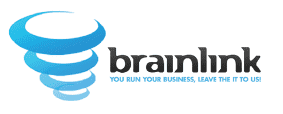
It’s a fair assumption that you use the Internet every day; social media, email, news, and more are undoubtedly a regular part of your daily life. Users like you have come to depend on the Internet for so much, from commerce to communication to entertainment, so can you imagine what would happen if the Internet gradually became more closed off, compartmentalized, and unfriendly to the user?
Consider the Balkans: Historically, this region of Europe has been contested and fought over by every empire from the Romans to the Greeks to the Mongols to the Russians and more. As a result, it has a mishmash of cultures, languages, religions, and warring factions that go back thousands of years. Alternatively, here in the US, 50 different states with distinct histories and developments all share:
- Common language
- Common currency
- Common road signs
- and more…
This is a nice history lesson, but it also serves as a striking example of the direction the Internet might be taking if certain corporations have their way.
Raj Goel, {company} founder, has spent his career focusing on Internet security, information security, and protecting businesses and families, and the biggest change he’s noticed is the speed with which the Internet is being “Balkanized” by different providers. Whereas we once had an entirely open (if not widely used) Internet, nowadays, private companies are doing everything they can to fragment the Internet for their own gains.
Aside from the fact that the few large corporations are benefitting from something made for all us, how else would a Balkanized Internet affect the everyday user? Consider these real-world examples:
- Exclusivity: Your iPhone only works with Apple’s App Store, and alternatively, your Android smartphone is limited to Google Play. This can be frustrating when a popular app you’d like to try doesn’t work for your phone. Can you imagine what’d it would be like if Microsoft Word was exclusive to PCs, or iTunes was only available on Macs?
- Web Filtering: Most versions of Amazon’s Kindle e-reader limit web browsing to just a few sources (Google, Wikipedia, and the Kindle Store). Taken far enough, the concept of web filtering could eventually become a kind of censorship, limiting search results and available sites to those that benefit the device or service’s provider, rather than prioritizing relevancy and user preference.
- Profitability: Non-profit, community supported and developed sites are an important part of the Internet. They often provide useful resources and services without asking for subscription fees or employing aggressive advertising practices. While they’re undoubtedly a big part of your Internet today, as for-profit interests gain greater control and influence over a Balkanized web, it’s these types of sites that will slowly be edged out if they don’t maintain popular support from consumers like yourself.
You have a great deal of power as a consumer and a user, just like a voter in a democracy. By supporting the right websites and utilizing their services conscientiously, you can encourage the growth of online communities and initiatives that will help to stop the advance of a Balkanized Internet.
To learn more about your role in promoting an open and secure Internet, be sure to visit {company} online.
